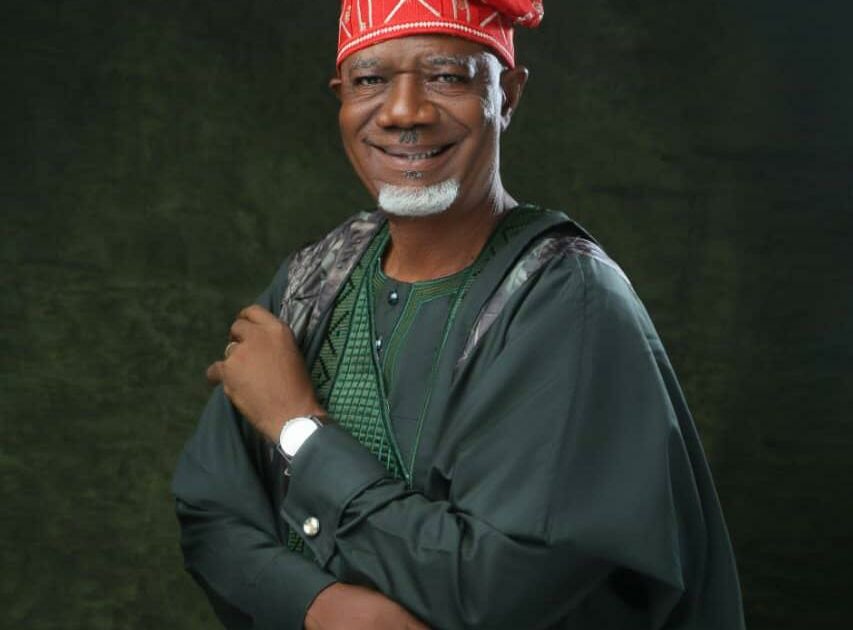Kayode Otitoju, a seasoned politician and former commissioner in Ekiti State, reflects on a life richly woven with political activism, public service, and entrepreneurial success as he approaches his 70th birthday. His journey, marked by defining moments and strategic alliances, reveals a deep commitment to his community and a relentless pursuit of justice and fairness. From his early foray into politics as a National Conscience Party senatorial candidate to his later collaborations with the Peoples Democratic Party, Otitoju’s narrative paints a vivid picture of Nigeria’s evolving political landscape.
Otitoju’s political awakening can be traced back to a pivotal moment in 2003. Hesitant about running for the Ekiti North senatorial seat under the NCP banner, he credits his wife’s decisive action – writing his name on the nomination form – as the catalyst that propelled him into the political arena. This seemingly small act set in motion a vigorous campaign alongside prominent figures like Femi Falana and Gani Fawehinmi, challenging the then-dominant Alliance for Democracy (AD). Although he didn’t secure the senatorial seat, the NCP’s performance, including winning two state assembly seats, significantly weakened the AD’s hold on Ekiti North, demonstrating the power of grassroots mobilization and a strong message of change.
The aftermath of the 2003 elections saw Otitoju forging a strategic alliance with the PDP, a move he describes as “divine vengeance” for perceived injustices within the AD. This partnership proved instrumental in preventing the AD from winning the governorship race. Otitoju attributes his subsequent political appointments and growing influence within the PDP to the support of former Governor Ayodele Fayose. He emphasizes Fayose’s “political sagacity” in recognizing his potential and entrusting him with key positions, even before formally joining the party. This bond of loyalty and mutual respect solidified their relationship, leading Otitoju to stand surety for Fayose during his detention by the EFCC years later.
Otitoju offers a critical analysis of the AD’s internal dynamics in 2003, pointing to their practices as the primary cause of the party’s decline across the Southwest, with the notable exception of Lagos State under the leadership of Bola Ahmed Tinubu. He contrasts Tinubu’s resilience and strategic maneuvering in Lagos with the widespread losses suffered by the AD elsewhere, attributing the party’s downfall to its own internal “impunity” rather than solely blaming external factors like President Obasanjo’s re-election bid. This period highlights the volatile nature of Nigerian politics and the crucial role of strong leadership in navigating complex political currents.
Otitoju’s political journey was not without its financial sacrifices. He candidly acknowledges the significant personal costs associated with his political ambitions, revealing how he had to sell vehicles, land, and houses in Lagos to finance his campaigns and political activities. However, he expresses no regrets about these expenditures, emphasizing the profound sense of fulfillment derived from serving his community and advocating for the voiceless. His entrepreneurial endeavors through his successful car dealership, Jukot Motors, provided the financial foundation for his early political aspirations, demonstrating the intersection of business acumen and political engagement.
Beyond the realm of party politics, Otitoju’s commitment to public service extended to various leadership roles within his community and beyond. He recounts his contributions as Chairman of the Lekki Residents Association, where he played a key role in revamping Lekki Phase 1, demonstrating his dedication to improving the living conditions and infrastructure of his local area. Furthermore, he served on the board of the Securities and Exchange Commission, chairing the project committee and instrumental in securing a permanent headquarters for the agency. These experiences underscore his versatile leadership capabilities and his commitment to contributing to broader societal development.
As Otitoju reaches the milestone of his 70th birthday, he expresses a profound sense of fulfillment, confident in his contributions to God, humanity, and his people. His journey, marked by unwavering tenacity and a steadfast belief in the judiciary as a means of resolving conflict, reflects a life dedicated to pursuing justice and making a positive impact. From his early days as a political activist to his later roles as a commissioner, community leader, and successful entrepreneur, Kayode Otitoju’s story is a testament to the power of perseverance, strategic alliances, and a deep-rooted commitment to serving others. His reflections offer valuable insights into the complexities of Nigerian politics and the enduring importance of individual action in shaping a better future.














